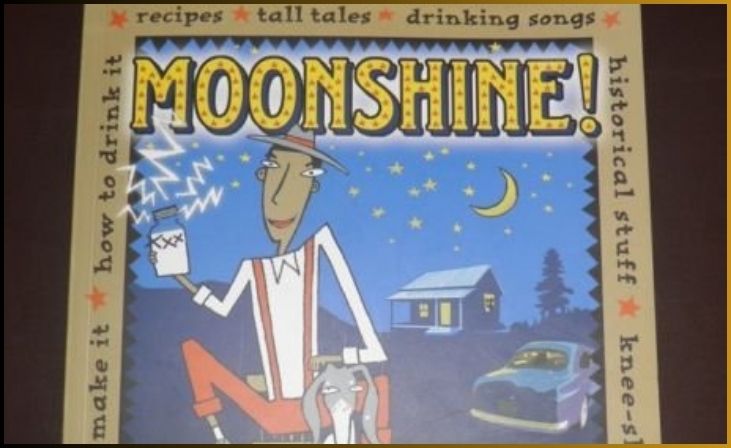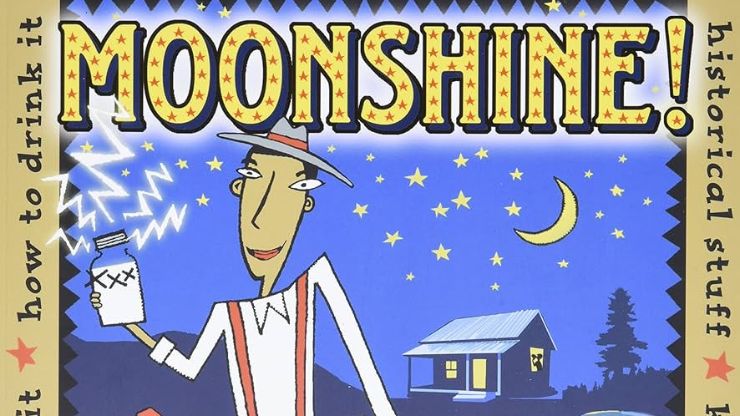In an effort to help educate folks in the art of fermentation, we like to include book reviews on the subject. After all, fermenting foods goes well beyond the head-of-cabbage-to-sauerkraut realm, as this review demonstrates. If fermented beverages (or how to make moonshine) are your thing, read on for Ashley’s insightful review of Moonshine! by Matthew B. Rowley.
“Moonshine!” is an engaging book that takes readers on a captivating journey into the world of illicit distilling and the history of moonshine. Written by Matthew B. Rowley, this book explores the cultural significance, techniques, and stories behind this notorious form of homemade alcohol. From the early days of bootlegging to the modern craft distilling movement, “Moonshine!” offers a comprehensive and fascinating look into this clandestine world. In this blog post, we will delve into the key features of “Moonshine!” and why it is a must-read for those intrigued by the history and allure of moonshine.
Table of Contents
ToggleBook Review: Moonshine! by Matthew B. Rowley

The art and science of fermentation have a long history, going back as far as the beginnings of human civilization. With human civilization came more complex fermentation processing methods, such as distillation, and due to the risks (and rewards) involved, regulation seemed inevitable.
Moonshine! by Matthew B. Rowley takes the reader through that not-always-savory history while discussing the science and cultural implications of small-scale distillation. As he promises, the book includes “recipes, tall tales, drinking songs, historical stuff, knee-slappers, how to make it, how to drink it, pleasing the law and recovering the next day.”
The chapter “Moonshine and the Law” stresses that unpermitted moonshine is not only illegal but potentially dangerous. While the author could go on to say, “though it’s illegal, and you’d never make any on your own, * wink *, here’s how to make it ‘for informational purposes only,’” the responsible author does no such thing. His goal is to explain that moonshine is just as respectable (and tasty) as any other beverage and that obtaining local and federal permits for a small-scale distillery is attainable for even a small backyard distillation operation. The well-researched book provides numerous examples of licensed, small backyard operations that operate within the law but still produce items that are traditionally deemed “moonshine,” such as traditional corn whiskey.
A Quick Review: Book Review Art of Natural Cheesemaking
This well-researched book takes you through the ins and outs of starting a small-scale, legal home distillation operation, all while incorporating humor and history into the mix. Detailed instructions are given for either purchasing the appropriate still or constructing your own. Traditional recipes are shared so that if the reader does choose to go through the appropriate channels and become a licensed distillery old methods will not be lost forever.
Don't just scroll, subscribe!
BuzzTrail's unique web-stories are the cure for boredom you've been waiting for.
Traditional recipes include “George Washington’s Rye Whisky” which you’ll learn is a type of whiskey made in a very profitable distillery run out of George Washington’s famous Mt. Vernon estate from 1797 to Washington’s death in 1799.
Other historical notes, beyond the pictures and stories of rum runners and their caches, caught my eye—especially the section about women in the moonshine business. Historically, distillation, as well as home brewing and most fermentation in general, was considered the work of women. The author notes that in a guide to housekeeping in the “eighteenth century, distilling was as much a part of female domestic duties as cooking and cleaning.”
Most importantly, the author takes the reader through detailed information regarding alcohol chemistry and safety to stress the importance of a solid, how-to-make-moonshine process to prevent accidents and dangerous batches from harming anyone.
All in all, I found Moonshine! to be a great read, for both its historical as well as practical significance. It’s not common knowledge that backyard distilleries are not only potentially legal but that small-scale distillation is on the rise in the United States. In my home state of Vermont, where a craft beer boom is currently underway, a lesser-known craft distillation boom is also underway as a number of small-scale distilleries have opened up to produce specialty spirits, often with a local flare including Vermont-produced maple.
Slowly, fermentation is coming back into the hands of the people, through small-scale home fermenters making their own sauerkraut, kombucha, yogurt, beer, wine, and now, slowly but surely, their own legal moonshine!
Bottom Line
“Moonshine!” is a captivating book that offers readers a fascinating glimpse into the world of moonshine. With its comprehensive exploration of the history, techniques, and cultural impact of moonshine, this book appeals to those intrigued by the allure of homemade spirits. Whether you’re interested in the historical roots of moonshining or simply fascinated by the stories of famous moonshiners, “Moonshine!” will entertain and educate you. Embrace the mystique of moonshine and uncover the hidden stories behind this notorious form of distilled spirits with this remarkable book.
FAQs
What sets “Moonshine!” apart from other books on distilling and homebrewing?
What sets “Moonshine!” apart from other books on distilling and homebrewing?
“Moonshine!” distinguishes itself by delving into the cultural and historical aspects of moonshine production. It’s not just a guide to distilling; it’s a narrative that explores the rich history, folklore, and characters associated with this age-old craft, providing readers with a holistic understanding of moonshining.
Is the book suitable for beginners interested in home distilling, or is it more geared towards experienced enthusiasts?
Is the book suitable for beginners interested in home distilling, or is it more geared towards experienced enthusiasts?
Whether you’re a novice intrigued by the art of distillation or an experienced enthusiast looking to deepen your knowledge, “Moonshine!” caters to all levels. It combines practical advice with captivating storytelling, making it accessible and engaging for a diverse audience.
Does the book cover the legal aspects of home distilling, and how does it address safety concerns associated with the craft?
Does the book cover the legal aspects of home distilling, and how does it address safety concerns associated with the craft?
Yes, “Moonshine!” addresses the legal landscape of home distilling, providing insights into the regulations surrounding this practice. The book also emphasizes safety measures, guiding readers on responsible and secure distillation practices to ensure a positive and lawful experience.
What can readers expect to learn about the cultural and historical significance of moonshining, and how does the author weave these elements into the book?
What can readers expect to learn about the cultural and historical significance of moonshining, and how does the author weave these elements into the book?
Matthew B. Rowley intricately weaves cultural and historical elements into the narrative. Readers can expect to explore the origins of moonshining, its role during prohibition, and the enduring cultural significance of homemade spirits. The book brings these stories to life, creating a tapestry of moonshining’s past and present.

